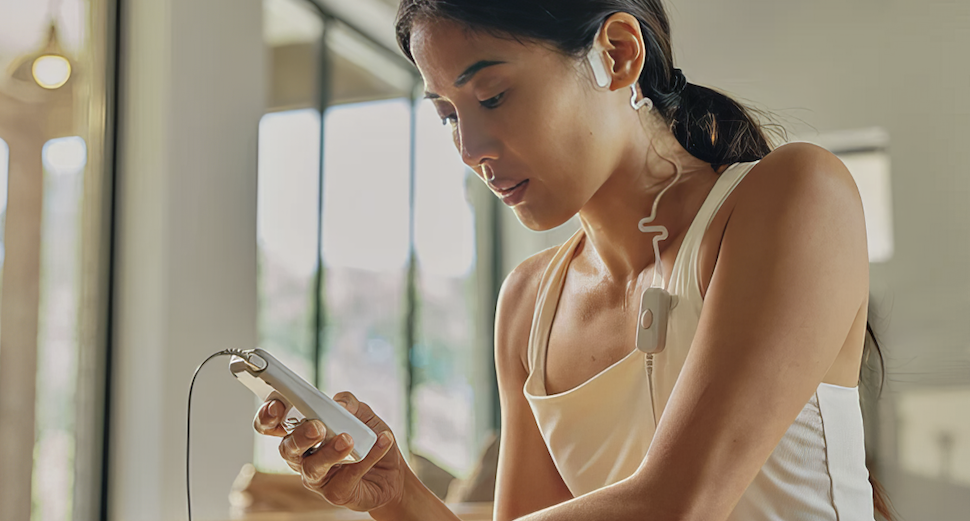OhmBody—a newly launched “science-forward” women’s wellness division of Dallas-based Spark Biomedical—has released the first wearable device for menstrual care that combines vagus and trigeminal nerve stimulation to provide holistic support for disruptive periods.
The company says its non-invasive, drug-free device is “designed to work with the body’s natural nervous system, not against it, delivering real, holistic relief without hormones or invasive procedures.”
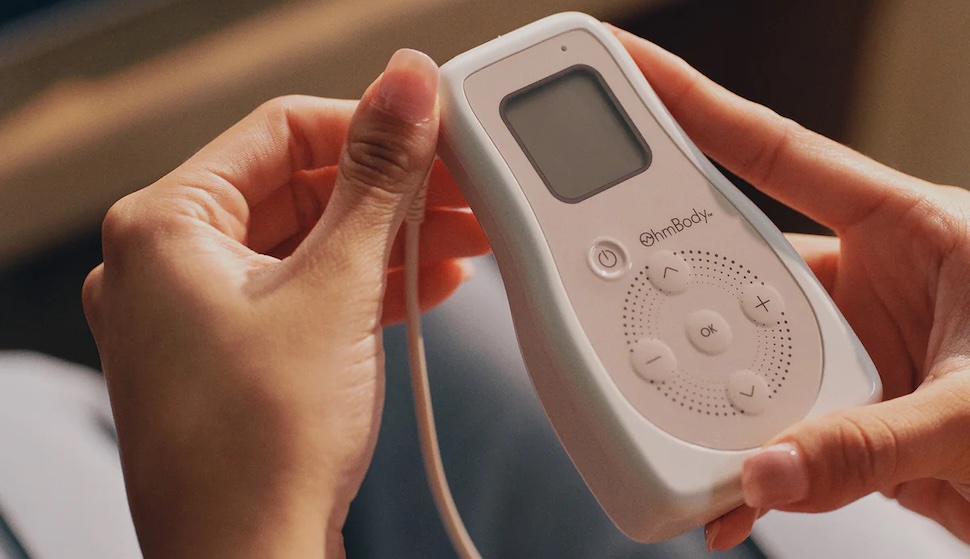
OhmBody wearable neurostimulation device [Photo: OhmBody]
Aims to reduce cramps, excessive blood loss, and more
The new device was developed by a cross-functional team of scientists, engineers, and women with lived experience, the company said. By targeting the body’s built-in regulatory systems, OhmBody is said to help reduce cramps, reduce unhealthy amounts of menstrual blood loss, and “provide support for other disruptive effects of your period like fatigue, gastric discomfort, and emotional fluctuations while supporting balance from the inside out.”
“We didn’t create OhmBody to help you ‘power through’ your cycle. We created it so you don’t have to,” Amy Gaston, VP of strategic growth at OhmBody, said in a statement. “No more heating pads, doubling up on protection, planning your wardrobe and your life around your period, and pretending everything is fine. It’s time for smarter period care that moves with you.”
Delivers low-frequency neurostimulation
The company said OhmBody delivers low-frequency neurostimulation through a discreet earpiece, activating both the vagus and trigeminal nerves—two key players in supporting pain regulation, inflammation, mood, digestion, and blood flow.
The dual activation aims to help guide the nervous system out of “fight or flight” mode and back toward “rest and digest,” the company said, helping the body self-regulate during the most disruptive phase of the menstrual cycle.
In clinical trials, participants reported 88% experienced greater menstrual comfort; an average of 55% reduction in menstrual blood loss, with a 35% reduction on day 1; and 71% felt more emotionally stable, OhmBody reported.
“Our research demonstrates that targeted neurostimulation can modulate autonomic nervous system activity to help regulate common menstrual symptoms,” said Dr. Navid Khodaparast, PhD, co-founder and chief science officer at Spark Biomedical. “OhmBody leverages this science to provide women with a non-invasive, drug- and hormone-free option for restoring balance and relief during their cycle.”
Priced at $719, the OhmBody Starter Kit includes a battery-powered neurostimulation device, 7 single-use adhesive earpieces, a connecting cable, and setup essentials, OhmBody said.
Spark recently raised a $15M Series A
In April, Spark announced the close of its $15 million Series A fundraising round. Led by Waco-based WAVE Ventures and supported by New York’s Pathway to Cures, the funding will accelerate Spark’s development of its bioelectronic treatments and support its core business focuses of neurological health, hemostasis, and women’s health, the company said at the time.
Founded in 2018, Spark says its technology uses “precise, mild electrical pulses” to stimulate the vagus and trigeminal nerves, activating the central nervous system to “modulate pathways, reduce discomfort, and support physiological balance, resulting in non-invasive, drug-free support for a range of conditions. The goal: harnessing the body’s natural response to electrical signals to deliver what Spark calls “targeted relief—without invasive procedures or pharmaceuticals.”
Spark’s wearable neurostimulation device, the Sparrow Therapy System, is being used to supplement traditional drug-based opioid withdrawal therapies as an FDA-cleared treatment option. The company is also partnering with the U.S. Air Force to explore its device’s ability to reduce motion sickness and spatial disorientation in pilots.
Don’t miss what’s next. Subscribe to Dallas Innovates.
Track Dallas-Fort Worth’s business and innovation landscape with our curated news in your inbox Tuesday-Thursday.
R E A D N E X T
-
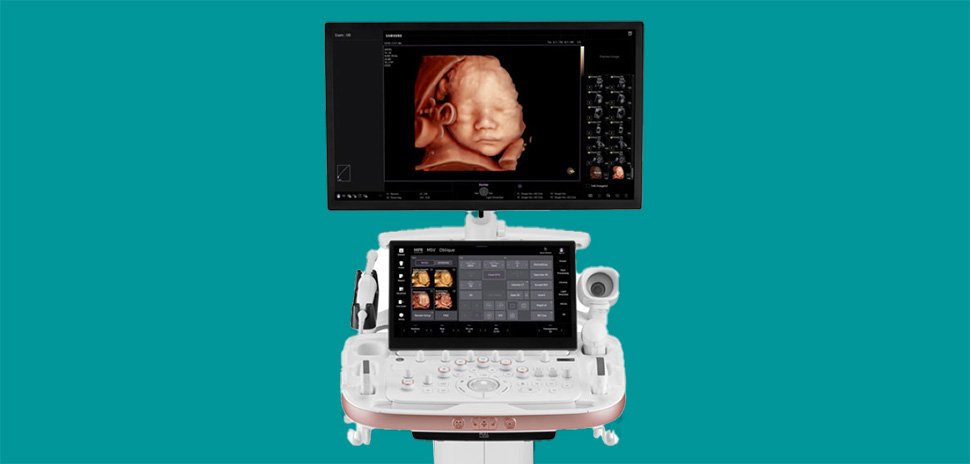
The Dallas maternal-fetal medicine practice calls Samsung’s Hera Z20—which uses advanced AI and other features to enhance diagnostic accuracy—a “pre-natal game changer for women’s health.”
-
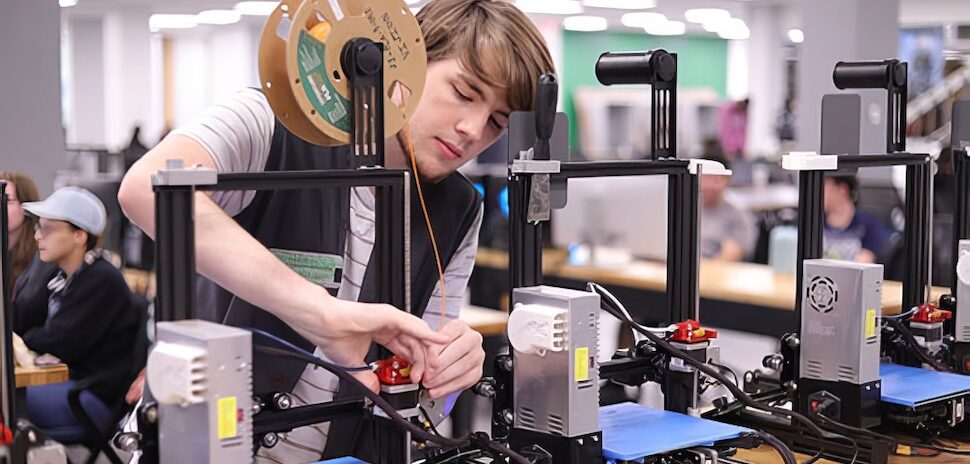
At the University of North Texas’ Willis Library in Denton, you can find lots of books. But something else is getting checked out: The Spark, one of three makerspaces operated by the university. Open to all UNT students, faculty, and staff, The Spark offers a long list of high-tech tools that can be accessed after training—including 3D printers, laser cutters, a computer numerical control mill, sewing and embroidery machines, tools for science and pottery projects, and more. Audio-visual gear and power tools at The Spark can be borrowed as well.
-
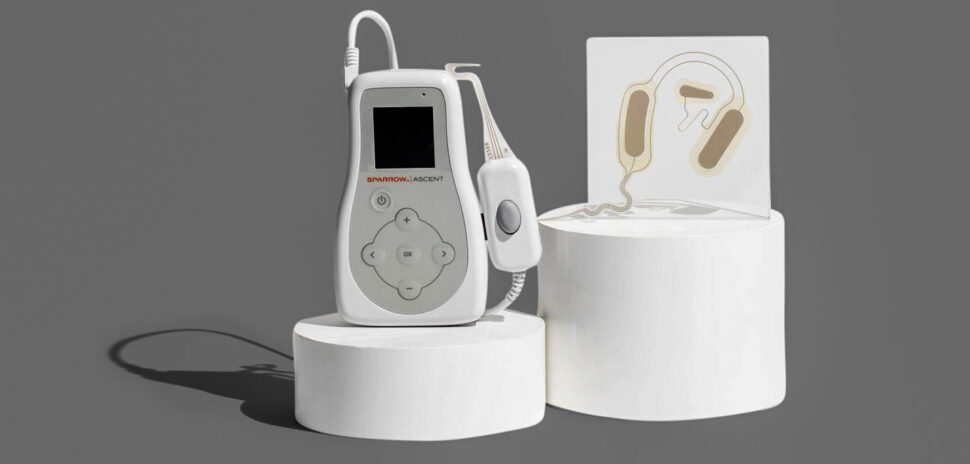
Whether in a cockpit, a tank, or a heaving ship, America’s warfighters face an unseen enemy: sudden bouts of nausea and disorientation that can make them lose their bearings in life-or-death situations. Armed with a $480K grant, Spark Biomedical will test its Sparrow Ascent neurostimulation device as a way to reduce the risk.
-

Spark said the new funding—led by WAVE Ventures and supported by Pathway to Cures—will help it scale its bioelectronic medicine platform and support its focuses on neurological health, hemostasis, and women’s health. In February, the company got a U.S. Air Force grant to explore its tech’s potential in easing pilot disorientation.
-

Last Thursday, SPARK! Dallas—a nonprofit that aims to ignite creativity in children through a fully immersive, hands-on learning environment—celebrated its 10th anniversary with a SPARKtacular fundraiser event. More than 160 guests attended, bid on silent auction items, and enjoyed appetizers and beverages at the home of Leigh and Bryce Williams. The goal: raise funds to help children learn about creativity. And as today’s Last Word shows, SPARK! Dallas Executive Director Meg Bittner has high hopes for what that mission could lead to.
